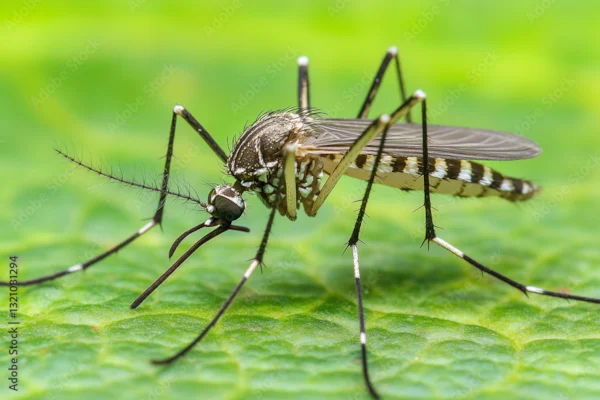12 Science-Backed Health Benefits of Moringa Leaves
Discover 12 science-backed moringa benefits from drumstick leaves antioxidants, heart and blood sugar support, and superfood nutrition tips.

Written by Dr. Dhankecha Mayank Dineshbhai
Reviewed by Dr. Rohinipriyanka Pondugula MBBS
Last updated on 13th Jan, 2026

Introduction
If you’ve heard people rave about moringa and wondered what the fuss is about, you’re not alone. Also called drumstick leaves (from the long seed pods of the tree), moringa leaves are packed with nutrients and have been studied for a variety of potential health benefits. In this guide, we’ll explore 12 science-backed moringa benefits in clear, friendly language—and show you how to enjoy this superfood safely and simply at home.
What Are Moringa Leaves?
Moringa oleifera is a fast-growing tree native to South Asia and now cultivated across Africa, Southeast Asia, and Latin America. Its leaves, pods (drumsticks), flowers, and seeds are used in traditional cuisines and remedies. The leaves in particular are rich in vitamins, minerals, plant compounds, and fibre, which has sparked growing interest among nutrition scientists. While research is ongoing, human studies and reviews suggest moringa leaves may support metabolic health, heart health, and more—when used as part of a balanced diet and healthy lifestyle.
Important note: No single food can cure a disease. Think of moringa as one nutritious component of an overall healthy pattern of eating, movement, sleep, and regular medical care.
Consult a Top Nutritionist for Personalised Advice
12 Science-Backed Moringa Benefits from Drumstick Leaves
1) Nutrient-Dense Support for Everyday Health
Moringa leaves provide a concentrated source of nutrients, including:
- Vitamins A (as beta carotene) and C, which support vision and immune function
- Minerals like calcium, potassium, and iron
- Plant-based protein and dietary fibre
- Protective phytochemicals such as polyphenols and flavonoids
- Why it matters: Many people fall short on fibre and potassium, and plant foods rich in micronutrients help fill common gaps in the diet. Moringa can be a useful addition, especially in regions where it is widely available and affordable.
- Evidence snapshot: Reviews of moringa’s nutritional profile consistently show high levels of micronutrients and bioactive compounds compared with many common greens. More research is evaluating how these nutrients are absorbed when moringa is eaten in typical meals.
2) Antioxidants That Help Combat Oxidative Stress
Moringa leaves contain antioxidants like vitamin C, beta carotene, quercetin, and chlorogenic acid. These compounds help neutralise free radicals, which can contribute to cellular damage over time.
- Why it matters: Diets rich in antioxidant-containing foods are linked with better overall health. While no single antioxidant is a magic bullet, regularly eating a variety of colourful plant foods—including moringa—supports the body’s natural defences.
- Evidence snapshot: Laboratory and small human studies show moringa leaf extracts can raise antioxidant capacity. Large-scale trials are limited, so moringa should complement, not replace, other antioxidant-rich foods such as berries, leafy greens, nuts, and beans.
3) May Support Healthy Blood Sugar Levels
Several small studies suggest moringa leaves may help blunt post-meal blood sugar spikes or modestly improve fasting glucose when used alongside a standard diet and care.
- Why it matters: Keeping blood sugar stable supports energy, mood, and long-term metabolic health.
- How it might work: Fibre and polyphenols in moringa may slow carbohydrate absorption and improve glucose metabolism.
- Evidence snapshot: Reviews describe modest effects in small, short-term studies. Larger, long-term human research is needed. If you have diabetes or take glucose-lowering medication, speak to your clinician before adding moringa, as it may enhance the effect of your medicines.
4) Heart Health: Cholesterol and Lipid Support
Early research indicates moringa leaves may support healthy cholesterol levels, particularly by reducing LDL (“bad”) cholesterol in some small trials, when combined with a heart-healthy diet.
- Why it matters: Managing LDL cholesterol helps protect cardiovascular health.
- How it might work: Moringa’s fibre and plant compounds may reduce cholesterol absorption and support lipid metabolism.
- Evidence snapshot: Human data are limited but promising. Moringa should be paired with proven heart-healthy habits—regular movement, more plant foods, less saturated fat, and not smoking.
5) Natural Anti-Inflammatory Compounds
Moringa leaves provide polyphenols and isothiocyanate-related compounds studied for anti-inflammatory effects in laboratory and animal models. Early human data suggest potential for reducing certain inflammatory markers, though evidence is still preliminary.
- Why it matters: Chronic, low-grade inflammation is linked to many health issues. A diet rich in diverse, colourful plants helps promote a healthier inflammatory balance.
- Evidence snapshot: Most data are from lab studies. Enjoy moringa as part of a wider anti-inflammatory eating pattern that includes vegetables, fruits, whole grains, legumes, nuts, and healthy oils.
6) Iron Support for Energy and Focus
Moringa leaves contain both iron and vitamin C. Vitamin C helps the body absorb plant-based (non-heme) iron more effectively.
- Why it matters: Iron supports oxygen transport in the blood. Insufficient intake can cause fatigue and reduced concentration.
- Who may benefit: Those who follow vegetarian or vegan diets, or people with higher iron needs, may find iron-containing leafy greens like moringa particularly beneficial.
- Evidence snapshot: Vitamin C’s role in iron absorption is well established. Moringa can contribute useful iron within an iron-conscious meal plan. Individuals with anaemia should follow medical advice.
7) Bone and Muscle Support with Calcium, Magnesium, and Potassium
Moringa leaves provide minerals that support bones, muscles, and overall metabolism, including calcium and potassium.
- Why it matters: Calcium supports bones and teeth, while potassium aids muscle contraction and helps maintain healthy blood pressure.
- Evidence snapshot: Research directly linking moringa to bone health is limited, but its mineral profile supports general well-being. Those with kidney disease or on certain medications should seek guidance on potassium intake.
8) Vision and Skin Support via Vitamins A and C
Moringa’s beta carotene (vitamin A precursor) supports normal vision and skin health, while vitamin C aids collagen formation for skin and connective tissue integrity.
- Why it matters: Adequate intake of these vitamins helps maintain vision and tissue repair throughout life.
- Evidence snapshot: The roles of vitamins A and C in eye and skin health are well understood. Moringa is one of many plant sources contributing to these nutrients.
9) Plant Protein with a Strong Amino Acid Profile
Moringa leaves contain higher protein levels than most leafy vegetables and offer a range of essential amino acids.
- Why it matters: For plant-based eaters, combining diverse protein sources throughout the day supports muscle repair, immune strength, and satiety.
- Evidence snapshot: Analyses show moringa’s notable protein content for a leafy green. Use it alongside other plant proteins for balance.
10) Gut-Friendly Fibre for Digestion and Fullness
Moringa offers dietary fibre, which supports digestive health, feeds beneficial gut bacteria, and enhances feelings of fullness.
- Why it matters: Most adults fall short on fibre intake. Adding moringa to your mix of greens, legumes, and whole grains can help close that gap.
- Evidence snapshot: Fibre’s digestive benefits are well documented. Moringa contributes usefully but should be part of a fibre-rich diet overall.
11) May Help Support Healthy Blood Pressure as Part of a Balanced Diet
Moringa leaves provide potassium and antioxidant compounds. Higher potassium intake, paired with reduced sodium, supports blood pressure control in many adults.
- Why it matters: High blood pressure is a major risk factor for cardiovascular disease and stroke.
- Evidence snapshot: Dietary potassium is proven to support blood pressure balance. Specific moringa trials in humans are limited, so consider it a helpful addition—not a replacement—for a balanced diet and healthy lifestyle.
12) Early Evidence for Liver and Metabolic Support
Animal and lab studies suggest moringa leaf compounds may support liver function and metabolic pathways. Limited human studies indicate possible improvements in certain markers.
- Why it matters: The liver plays a central role in metabolism and detoxification.
- Evidence snapshot: Human data are still preliminary. Moringa fits best into an overall lifestyle that already supports liver health—moderate alcohol, balanced nutrition, and regular activity.
How to Add Drumstick Leaves to Your Meals
- Fresh leaves: Sauté as you would spinach; add to soups, dals, curries, stews, or omelettes near the end of cooking.
- Powder: Mix ½–1 teaspoon into smoothies or sprinkle over soups, salads, or yoghurt. Start small—the flavour is earthy and peppery.
- Tea or infusions: Steep dried leaves for a gentle herbal drink.
- Traditional dishes: Include moringa in regional recipes for familiar taste and nutrition.
Tips:
- Pair moringa with vitamin C sources (tomatoes, peppers, citrus) for better iron absorption.
- Rotate your greens for variety and balanced nutrient coverage.
- Use reputable brands that test for safety and purity.
Safety, Side Effects, and Interactions
Potential Considerations
- Blood sugar or pressure medicines: Moringa may enhance effects; monitor closely with your clinician.
- Blood thinners: Maintain consistent intake of vitamin K–rich greens.
- Pregnancy and breastfeeding: Avoid moringa root or bark. Discuss leaf use with a healthcare provider.
- Kidney conditions: Moringa’s potassium content may require caution.
- Digestive sensitivity: Introduce gradually to avoid stomach discomfort.
Remember: Supplements aren’t regulated as strictly as medicines. Always choose quality-tested brands and prioritise whole foods.
Who Should Talk to a Clinician Before Using Moringa?
- Individuals with diabetes, cardiovascular disease, kidney disease, or liver disease
- People on prescription medications for blood sugar, blood pressure, or clotting
- Pregnant or breastfeeding individuals
- Anyone using concentrated moringa extracts or supplements
Smart Ways to Get Moringa Benefits with Superfood Nutrition
Build a Balanced Plate
Combine moringa with grains, legumes, vegetables, fruits, nuts, and healthy fats.
Think “Add, Not Replace”
Use moringa as a complement, not a cure-all. Add it to meals you already enjoy.
Consistency Beats Intensity
Small, regular servings are more sustainable than large, irregular doses.
Conclusion
Moringa leaves are a nutrient-dense, affordable way to add more vitamins, minerals, fibre, and protective compounds to your plate. The best-supported benefits involve antioxidant intake, nutrient support, and emerging findings for blood sugar, cholesterol, and inflammation. Use moringa as one helpful tool within a balanced diet and lifestyle, and consult your healthcare professional if you take medication or have chronic conditions.
Consult a Top Nutritionist for Personalised Advice
Consult a Top Nutritionist for Personalised Advice

Ms. Sushma Jaiswal
Dietician
42 Years • M.Sc.(Food & Nutrition)
Bengaluru
Swasthya Nutrition, Bengaluru

Ms. Neelanjana J
Dietician
5 Years • Bsc., Msc. Nutrition and Dietetics specialised general weight management, PCOS/PCOD weight loss and Diabetes management. A clinical dietitian with 4+ year experience specializing in evidence-based, result-oriented nutrition therapy. I have extensive experience in weight loss, thyroid management, PCOD/PCOS, weight gain, and diabetes & prediabetes care. My approach is personalized, practical, and sustainable—focusing on helping individuals achieve long-term lifestyle change rather than quick fixes. I work closely with clients to understand their medical history, lifestyle, and goals, and then design customized diet plans that support hormonal balance, metabolic health, and overall wellbeing. My goal is to make nutrition simple, realistic, and effective—so you see measurable results and feel your healthiest self.Auther in Health benefits of jackfruit (Artocarpus heterophyllus Lam.) seeds: A review (2023) The Pharma Innovation Journal Co- Auther in Malnutrition in Women: A review (2023) The Pharma Innovation Journal. Highfield Level 3 in HACCP. Highfield Level 4 International Award in Food Safety Managment
Bengaluru
Apollo Clinic, JP nagar, Bengaluru

Ms. Soma Saha
clinical nutrition
17 Years • B.Sc. - Home Science (Food & Nutrition), M.Sc. - Home Science (Food & Nutrition)
Kolkata
Dr Utsa Basu Clinic, Kolkata
(50+ Patients)

Ms. Samapti Maity
Dietician
16 Years • MSc. (Clinical Nutrition & Dietitics), NDEP, Course in Maternal Infant Young Child Nutrition.Diploma in Sports Nutrition, Diploma in Diabetic educator, FODMAP Specialist
Kolkata
BIENETRE CLINIC, Kolkata

Ms Mohanapriya J
clinical nutrition
12 Years • MSc Clinical Nutrition
Chennai
Apollo Sugar Clinics , Greams Road, Chennai
Consult a Top Nutritionist for Personalised Advice

Ms. Sushma Jaiswal
Dietician
42 Years • M.Sc.(Food & Nutrition)
Bengaluru
Swasthya Nutrition, Bengaluru

Ms. Neelanjana J
Dietician
5 Years • Bsc., Msc. Nutrition and Dietetics specialised general weight management, PCOS/PCOD weight loss and Diabetes management. A clinical dietitian with 4+ year experience specializing in evidence-based, result-oriented nutrition therapy. I have extensive experience in weight loss, thyroid management, PCOD/PCOS, weight gain, and diabetes & prediabetes care. My approach is personalized, practical, and sustainable—focusing on helping individuals achieve long-term lifestyle change rather than quick fixes. I work closely with clients to understand their medical history, lifestyle, and goals, and then design customized diet plans that support hormonal balance, metabolic health, and overall wellbeing. My goal is to make nutrition simple, realistic, and effective—so you see measurable results and feel your healthiest self.Auther in Health benefits of jackfruit (Artocarpus heterophyllus Lam.) seeds: A review (2023) The Pharma Innovation Journal Co- Auther in Malnutrition in Women: A review (2023) The Pharma Innovation Journal. Highfield Level 3 in HACCP. Highfield Level 4 International Award in Food Safety Managment
Bengaluru
Apollo Clinic, JP nagar, Bengaluru

Ms. Soma Saha
clinical nutrition
17 Years • B.Sc. - Home Science (Food & Nutrition), M.Sc. - Home Science (Food & Nutrition)
Kolkata
Dr Utsa Basu Clinic, Kolkata
(50+ Patients)

Ms. Samapti Maity
Dietician
16 Years • MSc. (Clinical Nutrition & Dietitics), NDEP, Course in Maternal Infant Young Child Nutrition.Diploma in Sports Nutrition, Diploma in Diabetic educator, FODMAP Specialist
Kolkata
BIENETRE CLINIC, Kolkata

Ms Mohanapriya J
clinical nutrition
12 Years • MSc Clinical Nutrition
Chennai
Apollo Sugar Clinics , Greams Road, Chennai
More articles from General Medical Consultation
Frequently Asked Questions
What Are Drumstick Leaves? Are They the Same as Moringa?
Yes. “Drumstick” refers to the seed pods of the Moringa oleifera tree. The leaves, called drumstick leaves or moringa leaves, are widely used in cooking and research.
Can Moringa Cure Diabetes, High Blood Pressure, or High Cholesterol?
No. Moringa isn’t a cure. It may support health markers alongside a balanced diet and medical care, but should never replace prescribed treatments.
Is Moringa Safe to Take Every Day?
Typical food amounts are generally safe. If you plan to use powders or capsules daily, start small and consult your clinician—especially if on medication.
What Does Moringa Taste Like and How Can I Use It?
Moringa tastes earthy and slightly peppery. Start with small amounts in smoothies, soups, curries, or egg dishes. Citrus and herbs help balance its flavour.
How Do I Choose a Good Moringa Product?
Choose reputable brands that share sourcing details and use third-party quality testing. Store powder in a cool, dry place out of direct sunlight.



_0.webp)
